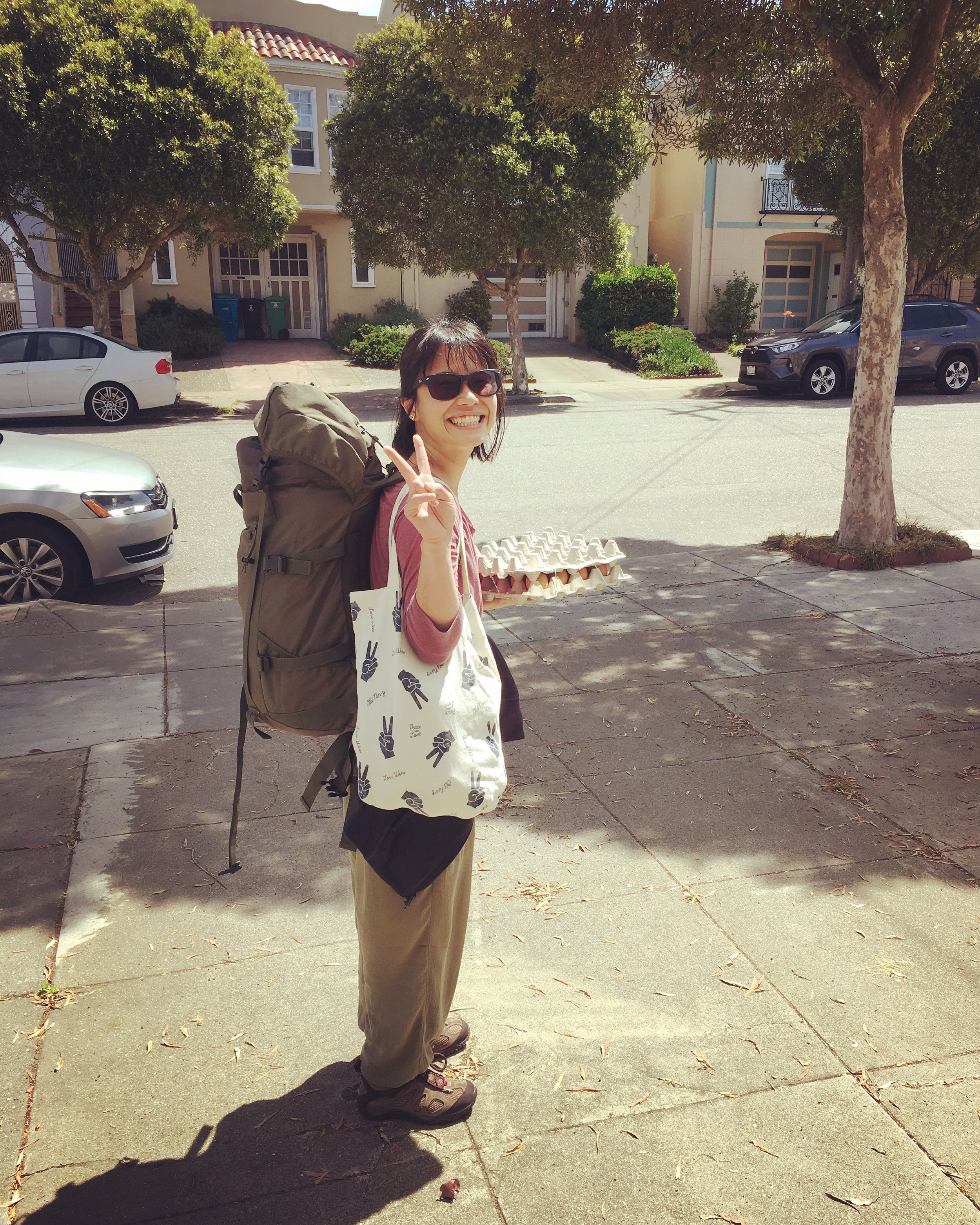Connecting to Community, Nature and Health through Food
Meet Rebecca Au, who tends to food and cooking in her daily life with attention, community, and joy. As Rebecca’s story illustrates, connection to food and where it comes from requires a locally oriented food system and adds much to our lives and collective well-being. This post is part of Profiles in Living Connected to Place, a series by Matt Biggar, Ph.D., that portrays individuals living connected to place with intention and the support of systems that make it possible. Prior posts can be found here.
Rebecca Au is the Volunteer and Youth Programs Coordinator for Golden Gate National Parks, headquartered in San Francisco, where she lives. Her family emigrated from Vietnam to the US when Rebecca was nine months old. Her parents initially worked in a bobbin factory in Atlanta, Georgia. As her parents could not afford childcare and did not have a network of family or friends there, she spent many days on her own as a toddler. They moved to San Jose, California, when she was five years old, and Rebecca lived there into her twenties, including attending and graduating from San Jose State University.
Rebecca sees herself as Chinese American but caught in between the two cultures— not fully accepted by Chinese immigrants because she grew up here and less American because she was not born here and has experienced the immigrant backlash in recent years. She speaks three languages—Cantonese, Vietnamese, and English—and has strong interpersonal skills. Despite her skills and education, Rebecca struggled financially early in her career and experienced homelessness for a year in her mid-twenties. She persevered through that difficult time.
Through the ups and downs, the one thing that has kept her grounded and connected to her heritage, family, friends, and community has been food. Rebecca shares that “life revolves around food.”
Preparing meals and cooking dinner provides her with feelings of satisfaction and fulfillment. Dinner is a social time with her partner and often includes upstairs neighbors or other friends. She takes home-prepared food to work and loves to share it with colleagues who appreciate her generosity and cooking prowess. Rebecca shifted to preparing more plant-based meals over the years to do her part in addressing climate change. She’s taught herself to pickle and dehydrate vegetables to enjoy them out of season.
Rebecca relishes weekend food shopping at a collection of Asian and Middle Eastern markets five blocks from her home. She practices Cantonese with some vendors, buys food for the upcoming week, and loads it all in reusable containers and cloth bags that go into her large backpack. Carabiners on the pack attach to additional bags of food. Her partner was initially skeptical of her “backpack shopping” but now embraces it and helps carry the food. The walk to the markets gets her outside, where she enjoys the community and fresh air.
Rebecca and her partner also buy local produce at a nearby farmers market every Sunday. She explains:
We get amazing chard, kale, beets, carrots, daikon, bitter melon, and other produce to last us the week, all for around $20. It’s my favorite way to cap off the weekend by supporting Bay Area farmers and getting good exercise.
The farmers market is about a 15-minute walk from her home. She enjoys running into neighbors there and visiting with the usual vendors each week.
Farmers markets with locally grown produce, minimal food waste, homemade plant-based meals, sharing food, and locally owned grocery stores like Rebecca experiences are all part of a thriving food system that connects us to place, community, and nature. Rebecca expresses, “I’m extremely grateful to live in a place where this activity is possible!” Local food systems also minimize harm to the environment and support personal health.
Reflecting on her life, Rebecca concludes, “Shelter and food are all I really need.” In an age dominated by consumerism and digital technology, Rebecca reminds us that tending to food with attention, community, and joy adds much more to our lives and collective well-being.

